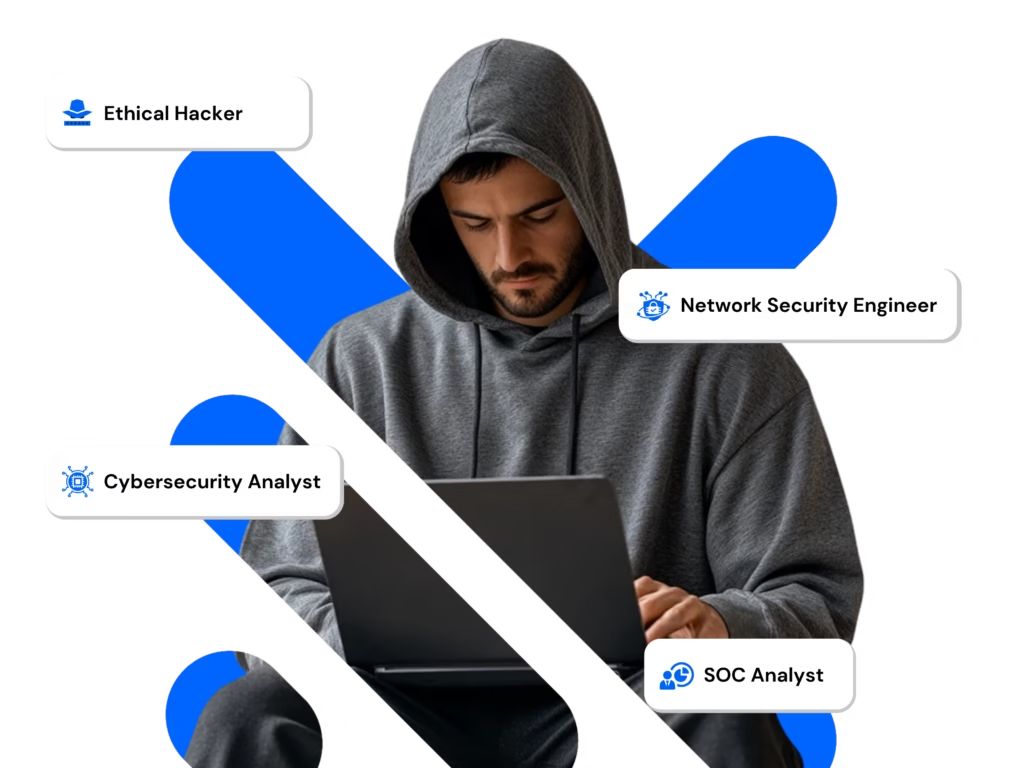While choosing a certification path of CISM and CISSP, the approach of both the certifications differs, but information protection is at the heart of both. CISM, which focuses on risk management, security policy establishment, and ensuring that security supports the business, is for those who aspire to be leaders. Consider leadership and strategy from a broad perspective. The CISSP, on the other hand, is for people who enjoy technical tasks like configuring firewalls, protecting networks, and directly resolving security issues. It involves comprehending the intricate technical underpinnings of cybersecurity. Therefore, CISM is for you if you envision yourself managing teams and making important choices. The CISSP is the best option if you enjoy getting your hands dirty and learning about technology.
Table of Contents
How CISM and CISSP differ in focus and career path

The career goals of CISM and CISSP are different. CISM prepares you to be a leader in the future by teaching you how to develop security policies, manage risks, and connect security efforts to organizational objectives. An information security manager, risk officer, or even CISO can be obtained with CISM. The CISSP is intended for practical security professionals and covers subjects including system design, network defense, and cryptography. Security analysts, architects, or consultants are common starting positions for CISSP holders, who can advance to positions as technical leads or senior engineers
Also check out certified-information-security-course for details.
understanding of CISSP: Strategic Oversight and Technical Leadership
The Certified Information Systems Security Professional (CISSP) credential is intended for cybersecurity professionals who wish to succeed in positions requiring in-depth technical understanding and strategic direction. With its broad covering of several cybersecurity sectors, this certification equips you to successfully lead intricate security projects and efforts. You can manage complex technical environments, create strong security frameworks, and offer knowledgeable advice on cybersecurity strategy with CISSP. Professional leaders, senior security engineers, and security architects are among the positions that professionals who pursue the CISSP often hold.
Understanding CISM: Strategic Alignment, Management, and Governance
The Certified Information Security Manager (CISM) credential is designed especially for individuals who want to take the lead in cybersecurity from a governance and management perspective. CISM prioritizes risk management and coordinating security initiatives. With the help of CISM, you can discover how to link security initiatives to business objectives and make sure that all controls and policies help the organization achieve its goals. Designing incident response plans, evaluating and managing risk, and creating governance frameworks are all skills you will acquire. The ability to lead security programs, direct executive decision-making, and propel long-term strategic growth are the ultimate goals of CISM.

Key Differences: Technical Focus vs. Management
For professionals who want to advance into management and leadership positions in cybersecurity, CISM is the most appropriate program. Its main areas of concentration are governance, risk management, and matching security plans to overarching business objectives. On the other hand, CISSP is highly technical and intended for people who wish to create, oversee, and put security systems into place. Network security, cryptography, and security architecture are among the extensive subjects it covers. CISM is a good choice if you want a job that entails managing security teams and establishing guidelines. However, CISSP is a preferable option if you would rather have a hands-on involvement at the development and security of systems.
Job Roles and Career path Alignment
Think of CISM as a pathway to leadership: as an information security manager or potentially a CISO, you will be developing security policy, directing risk strategy, and managing teams. On the other hand, CISSP is all about getting your hands dirty. First, you will work as a security analyst, systems architect, or consultant, designing defenses, identifying risks, and creating secure systems. With more experience, CISSP professionals frequently advance to technical leads or senior engineers, whereas CISM holders take executive positions. In summary, choose CISM if you enjoy people leadership and big-picture planning, and CISSP if you enjoy practical technical problems.

Exam Differences and Certification Requirements
You must have at least five years of information security management job experience (some replacements are permitted) in order to sit for the CISM exam, which consists of 150 questions spread across four hours and focuses on governance, risk, and incident management. The CISSP exam lasts three to five hours and consists of up to 175 questions covering everything from network security to cryptography. It also requires five years of expertise, but in at least two of its eight technical fields. To put it briefly, the CISSP exam tests your practical technical skills in a variety of domains, whereas the CISM exam seems like a deep dive into security leadership.
Know more from books.google.co.books about CISM_ to know more.
Top Resources & Prep Techniques
Create a basic weekly study schedule to get you started. Work on one topic at a time in 45–60 minute sprints, and use timed practice tests to identify any gaps. Add short video lessons or flashcards to the official CISM Review Manual or CISSP CBK, then bookmark it. Lastly, join a local chapter study group, connect with a mentor, or post on online forums (r/CISM, r/CISSP) to exchange advice and maintain motivation.
Maintaining your edge
By completing 120 CPE credits every three years, or roughly 40 annually, through webinars, online courses, or conference sessions, you can maintain your certification. In order to prevent credit accumulation, set up quarterly reminders and log each credit as you travel through your ISACA or (ISC)2 site. Additionally, don’t undervalue the importance of community: peer-led webinars, industry conferences, and local chapter meetups not only contribute toward CPEs but also keep you up to date on the newest trends and best practices.
Which certification—CISM or CISSP—is better for advancing your career?
Depending on your objectives, both credentials provide good employment prospects. To advance into management or leadership positions like CISO or Information Security Manager, CISM is a great fit. Technical professionals who wish to advance into positions like Security Architect or Senior Security Engineer are better prepared for the CISSP. In order to cover both the technical and leadership areas, many professionals ultimately pursue both.
Can someone without experience take the CISM or CISSP course?
Without having all the necessary experience, you can still sit for the CISM and CISSP exams, but you won’t receive your certification until you fulfill their requirements. While CISSP needs five years of experience in at least two of its eight domains, CISM requires five years of experience in information security management (with limited exceptions). On the other hand, passing the test early can improve your resume and demonstrate your dedication.
What are the differences in structure and difficulty between the exams?
The four-hour CISM test consists of 150 multiple-choice questions covering key subjects like risk management and governance. The CISSP test covers a wide range of technical topics and has an adaptive style with up to 175 questions spread across 3–5 hours. Because of its greater breadth and depth of technical topics, CISSP is frequently seen as more difficult.





